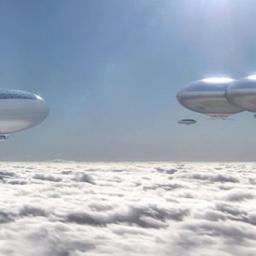NASA envisons an airborne colony on Venus, before Mars
 The science world has been mostly fixated on Mars and comets, but some scientists at NASA are starting to talk about Venus -- suggesting a manned mission to our closest neighbor could be simpler and less expensive than a trip to Mars.
The science world has been mostly fixated on Mars and comets, but some scientists at NASA are starting to talk about Venus -- suggesting a manned mission to our closest neighbor could be simpler and less expensive than a trip to Mars.Venus is one of the least hospitable places in the solar system. Its close proximity to the sun makes its surface unimaginably hot -- 462 degrees celsius. And its lower atmosphere is a highly pressurized oven of noxious gases. A manned mission to Venus, however, wouldn't have to involve the planet's surface. Researchers say just a few miles higher up and Venus's atmosphere boasts conditions not unlike Earth's, with more a manageable temperature and pressure. A new study by researchers at the Systems Analysis and Concepts Directorate, part of the NASA Langley Research Center, suggests astronauts could circle Venus in a helium-inflated dirigible -- conducting science experiments as they orbit.
This mission calls for a 129-meter airship floating 50 kilometers above the surface, called the High Altitude Venus Operational Concept (HAVOC), which has a small habitat suspended below and solar panels on top for power. At that level, the atmospheric pressure is one atmosphere. The temperature up that high is only 75 degrees Celsius, which is perfectly manageable. Even at 50 kilometers up, Venus' atmosphere offers ample protection from radiation - it's about the same level you'd experience in Canada. Mars, on the other hand, would expose astronauts to 40 times more radiation than on Earth. Power would be no problem as Venus gets 40% more solar energy than Earth and 240 times more than Mars. Since there is a thick atmosphere, the airship could use that electrical power to spin propellers or turbines for propulsion.
That necessitates the structure of the aerostat being extremely lightweight.